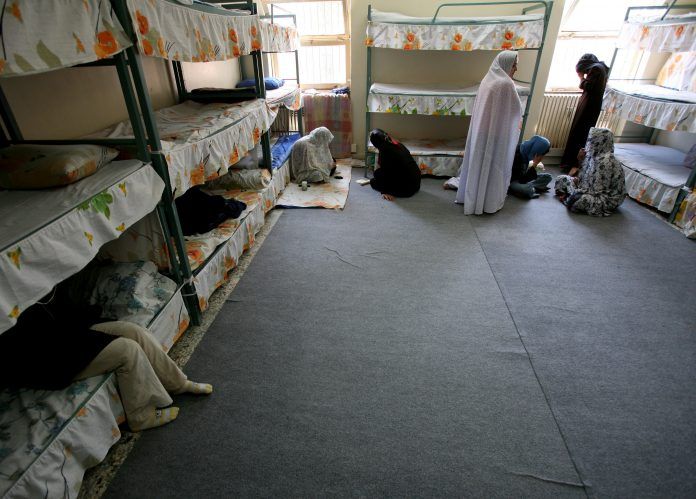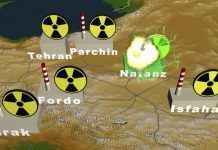At least 31 women in Iran were executed in 2024, the highest number executed by the Islamic Republic in more than 15 years, according to a Jan. 6 report published by the Oslo-based Iran Human Rights group (IHRNGO).
The report, titled “Women and the Death Penalty in Iran: A Gendered Perspective,” said that they were among at least 241 women who were executed between 2010 and 2024.
The Islamic Republic is currently the world’s most prolific executioner of children, women and men on a per capita basis. The number of executions in Iran has risen every year since 2021, according to IHRNGO. At least 900 people were executed in 2024.
The United Nations condemned the sharp rise in executions in a Jan. 7 statement and called on Iran to place a moratorium on the use of the death penalty with a view to abolishing the practice. The UN opposes the use of the death penalty for all states.
UN Says Iran Executed Over 900 People in 2024, Including Dozens of Women
“It is deeply disturbing that yet again we see an increase in the number of people subjected to the death penalty in Iran year-on-year,” the United Nations Commissioner for Human Rights Volker Türk said in the statement. “It is high time Iran stemmed this ever-swelling tide of executions.”
The report noted that at least 114 women were executed after being found guilty of murder. More than 70 percent of those women were accused of killing their husbands or partners, often after the women made allegations intimate partner violence (IPV) against the men. Four women were confirmed to have a mental health condition, while four were found to have killed their partners in self-defense to try to prevent themselves from being raped.
Eight of the women were child brides at the time they allegedly committed the murders. Girls in Iran can be forced into early marriages from as early as 9 years old, under aspects of Sharia law which are currently in force. There is no legal minimum age for marriage in the Islamic Republic. While successive governments have promised to review the law in this area following pressure from the UN, little has been done by the regime to stem child marriage in the country.
The office of the UN High Commissioner has repeatedly called on Iran’s government to prohibit the marriage of children below the age of 18 in all circumstances.
Arrest of Unclothed Student Puts Iran’s Women Back in Global Spotlight
Prior to the 1979 revolution, Iran sought to develop and protect the rights of girls and women. The government enacted several progressive pieces of legislation, such as the Family Protection Act in 1967, which conferred rights on women, and set the minimum age of marriage at 15 for girls and 18 for young men. The act was abolished after the Revolution.
Additionally, the report said that out of the total of at least 241 women executed in the last 14 years, at least four were executed for security-related charges including waging war against God and corruption on earth. Three of the women were accused of espionage, and at least two of them were political prisoners.
One of the women, Nasim Namazi, a Sunni Kurd, was sentenced to death on charges of spying for Israel and executed in Urmia Central prison on Dec. 28, 2023.
Zahra Esmaili, who was reportedly already dead when she was hanged in 2021, was charged with the murder of her husband, a senior Ministry of Intelligence official. Human rights groups said Esmaili had been a victim of domestic violence and that her husband frequently beat her up. Esmaili reportedly died of a heart attack after witnessing 16 men being hanged before her.
Adiva Mirza Soleiman Kalimi, an Iranian-Jewish political prisoner who lived in the US, was hanged in 2011 with her husband Varjan Petrosian. Kalimi began to visit Iran a few years before her arrest, for reasons which her family said were unclear.
Shirin Alam Hooli, a Kurdish political prisoner, was sentenced to death for cooperating with the Kurdish opposition group “PJAK” and was executed in 2010.
The report identified the second biggest motive for the death penalty against women as being for drug-related offences, which led to 107 women being executed.
“Prior to the 2017 Amendment to the Anti-Narcotics Laws, drug-related led to the most number of women executions in Iran,” the report said. “The Amendment led to three years (2018-2020) of no woman executions being recorded until it was reversed in practice in 2021. The number of women executed for drug-related offenses is now at a nine-year high and set to further increase.”
Women have become increasingly vulnerable to arrest and the death penalty after the 2022 nationwide protests sparked by the death of 22-year-old Mahsa Amini. Amini was arrested for failing to wear her hijab according the law, and died of injuries she sustained while in police custody.
The protests were largely led by women and young people, and prompted the ‘Woman, Life, Freedom’ gender equality movement. Hundreds of women were detained and abused by Iranian authorities, many of whom were tortured during detention and forced to make confessions.














